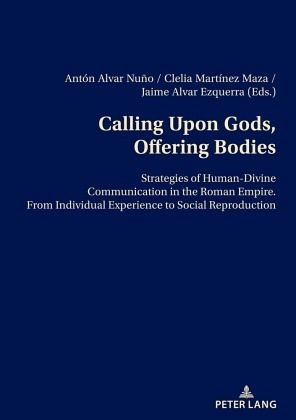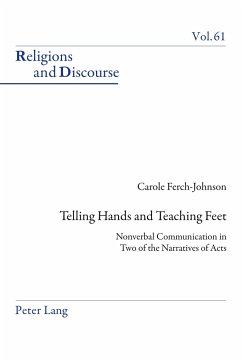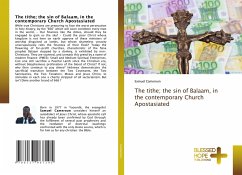
Calling Upon Gods, Offering Bodies
Strategies of Human-Divine Communication in the Roman Empire from Individual Experience to Social Reproduction
Herausgegeben: Alvar Ezquerra, D. Jaime; Martínez Maza, Clelia; Alvar Nuño, Antón
Versandkostenfrei!
Versandfertig in 6-10 Tagen
84,95 €
inkl. MwSt.

PAYBACK Punkte
0 °P sammeln!
This volume aims at analysing how self-experience of religious communication becomes a reflexive phenomenon reproduced in time and space to constitute a collectively shared narrative. The issues addressed in this volume investigate how individual, creative micro-strategies of communication with the gods became established patterns of behaviour, to what extent individual behaviour was mediated by cultural constraints, or why individual biographies of divine experience became exempla and identity markers.The different chapters of this volume explore human-divine communication through three diffe...
This volume aims at analysing how self-experience of religious communication becomes a reflexive phenomenon reproduced in time and space to constitute a collectively shared narrative. The issues addressed in this volume investigate how individual, creative micro-strategies of communication with the gods became established patterns of behaviour, to what extent individual behaviour was mediated by cultural constraints, or why individual biographies of divine experience became exempla and identity markers.
The different chapters of this volume explore human-divine communication through three different study-cases: linguistic communication and, specially, the role and processes of construction of divine epithets; the use of the body as a tool for communication with the supernatural; and the role of objects in the human-divine communicative act.
The different chapters of this volume explore human-divine communication through three different study-cases: linguistic communication and, specially, the role and processes of construction of divine epithets; the use of the body as a tool for communication with the supernatural; and the role of objects in the human-divine communicative act.














